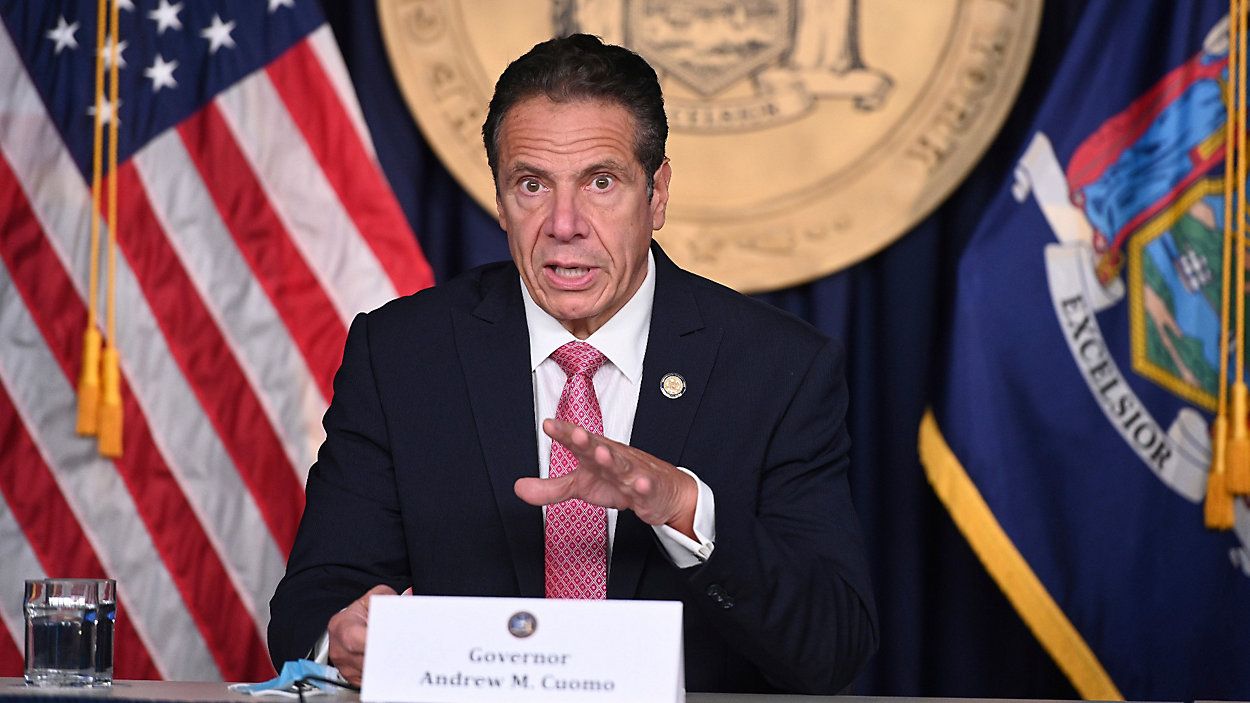Rookie Gov. Andrew Cuomo in 2011 faced a political conundrum. He had pledged to not increase taxes, and higher tax rates were set to expire at the end of the year, leading to calls from the nascent Occupy Wall Street movement to act.
In the end, the state legislature convened a December session to vote a deal Cuomo helped to engineer: The expiring tax rates would be altered so richer New Yorkers would get slightly less of a tax increase then they were in line to receive. Thanks to the funky accounting of Albany, this led to a $1.9 billion down payment of sorts for the state budget that March.
This year the problem, as Cuomo sees it, is a lot more straightforward and a lot less political. New York needs to find money to make up for the lost revenue. He has called for billions of dollars in aid from the federal government, but the governor has also acknowledged a tax increase will likely be needed if the aid from Washington isn't enough.
That's where the large Democratic majorities of the legislature can and will step in. Speaker Carl Heastie on Monday indicated the legislature could return as early as this month in a lame-duck session to pass a tax increase that could generate more revenue than doing it in the budget and avoiding a retroactive hike that could be challenged in court.
But Cuomo is urging caution in the approach. Hours after Heastie told reporters about the potential return, Cuomo at a news conference reiterated his wait-and-see approach with Washington and the incoming administration of President-elect Joe Biden.
"The state tax increase is not just a political decision, it's a revenue decision," Cuomo said. "How much money do you need to balance the budget? That is the question for a state tax increase and is it enough to close the deficit."
Cuomo over the years has not rushed headlong into increasing taxes. The 2011 tax rate compromise came after weeks of being pressed by progressive organizations and Democratic lawmakers. Cuomo even compared his stand to the principled opposition his father had against the death penalty when he was governor.
Still, there is a political reality at work, too. Cutting spending for budget items like education and health care will be called painful by Democratic lawmakers in the coming weeks. Less painful, especially for most of their non-wealthy constitutents, is raising taxes on richer New Yorkers.
The governor has done some back-of-the-envelope math on the tax talk. He does not expect it wil net the needed billions to fully close the budget gap. Progressives have proposed billions of dollars in tax hikes mostly aimed at upper income earners beyond tax rates, including a levy on second homes in New York City and stock transfers.
Partially rooted in Cuomo's tax talk is a concern over the state essentially negotiating against itself with Congress. If New York is raising taxes, why provide more aid than necessary? It's not hard to see Republicans in the U.S. Senate already thinking this as a stimulus package is negotiated.
"Doing it without the Washington funding is going to be really, really difficult," Cuomo said on Monday. "I don't believe Washington gives us nothing at the end of the day. The end of the day may be Joe Biden in February, but I don't believe they give us nothing. They'll bankrupt the nation if they bankrupt the states."


